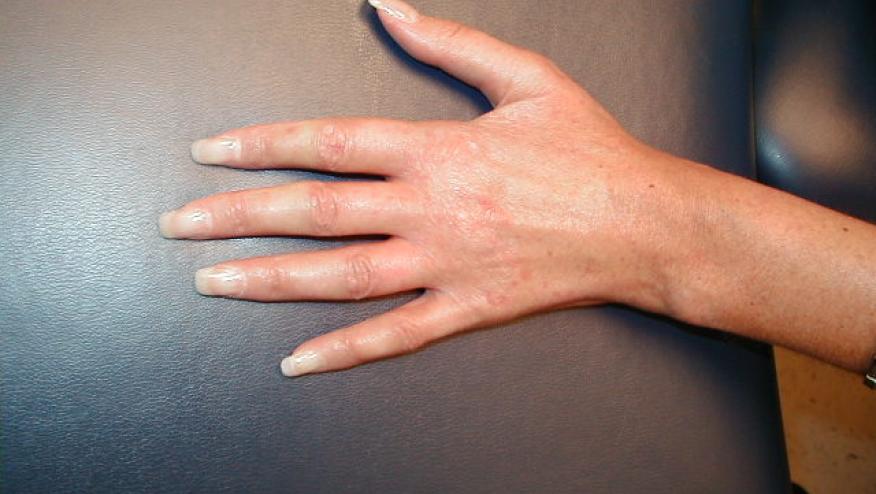Long-Term Benefit of Rituximab in Systemic Sclerosis Save

A small cohort trial of rituximab (RTX) in 29 systemic sclerosis patients showed significantly improved skin sclerosis and lung function after a follow-up of 96 weeks.
DESIRES ws a multicenter, double-blind phase 2 trial that previously reported week 24 outcomes, also showing clinically significant improvement in skin and lung outcomes. Patients (n=56)were treated with 24 weeks of placebo (PBO) or RTX (375 mg/m2 IV for intravenously, weekly for 4 consecutive weeks) and follwed for 24 weeks in an open-label extension. The primary endpoint was change in mRSS at week 24 and 48. While 48 patients completed the week 48 extension phase, 31 continued to receive rituximab, of which 29 had complete data out to week 96.
From the 29 completing SSc patients, there was significant improvement in modified Rodnan skin score (MRSS; −7 [−8.5 to −4]; P < .001) and percentage of predicted forced vital capacity (FVC%) 3 (median [IQR] change in FVC% predicted, 1.85 [0.13-5.68]; P < .001).
Researchers noted that high responders (MRSS improvement of ≥9; n = 16) experienced a greater decrease in serum levels of IgG (median −125 vs 7 ; P = .008) and IgA (median change −45 vs −11; P < .001). Changes in IgA levels significantly correlated with the improvement in MRSS (r = 0.64; P < .001).
This study showed the beneficial long term effects of RTX in a subset of SSc patients; and suggests that serum immunoglobulin levels should be explored as potential response biomarkers.










If you are a health practitioner, you may Login/Register to comment.
Due to the nature of these comment forums, only health practitioners are allowed to comment at this time.